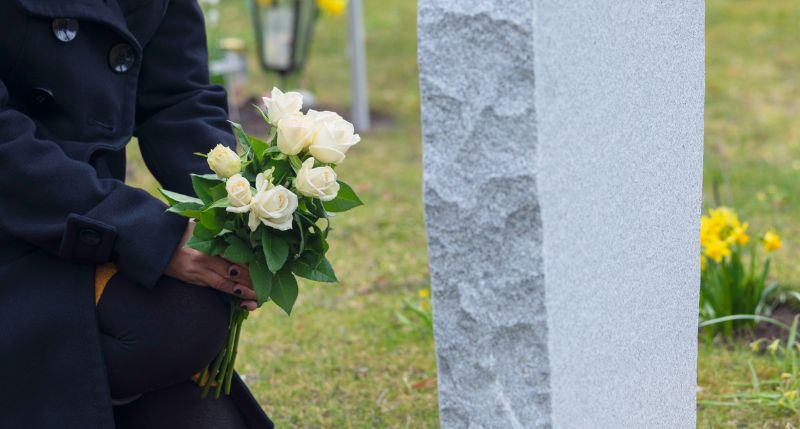
Applying for probate can be a highly emotional and stressful experience when you’ve just lost your spouse.
The answer to this question is that it depends. Generally speaking, probate isn’t required between spouses if the assets in the estate are jointly owned.
However, you may be required to apply for probate if your spouse dies and leaves behind a range of assets that are not jointly owned with you.
The rules around probate can be confusing, as such, it’s important to seek legal advice and support from a probate solicitor to find out what you need to do next.
In some cases, you might be required to apply for probate or letters of administration if the estate contains assets worth more than £10,000 that were entirely owned by them. This, however, is not a hard and fast rule. It is always best to speak with the companies your loved one held assets with first to determine their requirements.
These assets include, but are not limited to:
- Bank and Building Society accounts
- Pensions
- ISAs
- Shares
1. Bank & Building Society Accounts
Considering you can legally have as many bank accounts as you like across numerous banks, your spouse might have multiple accounts that they solely own.
Bank and building society accounts of a low value can be released without a Grant of Probate.
In other circumstances where an account contains more than £10,000, this won’t always be possible. While some banks and building societies will release funds to pay for a funeral, probate, and Inheritance Tax, other funds may not be released until you’ve been granted probate or letters of administration.
That said, this entirely depends on the organisation in question, as some banks and building societies won’t release any funds regardless of how small the amount of money is.
2. Pensions
Generally speaking, pensions are not part of a person’s estate when they die and typically fall outside of an estate for Inheritance Tax and distribution purposes.
If your spouse had a pension, the death certificate and Will should be provided to the pension company as soon as possible. The company may also wish to have sight of your marriage certificate so they can confirm you are the surviving spouse in instances where ongoing widow or widower payments may apply.
From here, the pension company will be able to advise you on what will happen to the funds.
Your spouse’s pension might be released to you without you having to apply for probate or letters of administration.
However, in cases where the trustees of a pension scheme have not received instructions from the deceased on who should benefit from the pension, the pension company can request a Grant of Probate in order to make a payment to the personal representatives of an estate.
3. ISAs
Another additional asset that might require you to apply for probate is Individual Saving Accounts, also known as ISAs.
Types of ISAs include, but are not limited to:
- Cash ISAs.
- Stocks and shares ISAs.
- Lifetime ISAs.
If your spouse has more than £10,000 in any of their ISA accounts, then applying for probate may be required to access the funds.
It is possible to transfer ISA balances to a surviving spouse under the Additional Permitted Subscription scheme. Under this scheme, the balances would be provided to you as a separate balance to any ISA you may already hold without affecting your personal tax position.
Get in touch with our Wills and probate solicitors to discover the next steps.
4. Shares
If your spouse had shares that were solely theirs in their estate, you are more likely to require probate.
Dealing with shares in an estate can be a time-consuming and complicated process for executors, which is why it’s generally recommended that you sell small amounts of shares later on in life.
That said, there are some circumstances, such as when shares are under a certain threshold that shares can be dealt with without probate being granted.
Do Surviving Civil Partners Need Probate?
In short, it depends. Much the same as married partners, probate isn’t required by a surviving civil partner for any assets that are jointly owned.
This includes everything from bank accounts to joint savings to property.
That said, if your civil partner solely owned assets in their estate that are worth more than £10,000, a Grant of Probate or letters of administration may be required before you can access them.
Joint Tenants Vs Tenants In Common In The UK
There are two ways you can own a property with another person, as joint tenants or tenants in common.
Establishing the difference is essential when dealing with the estate of your spouse, as this will affect whether you need to apply for probate.
When a property is owned as joint tenants, both tenants have equal rights to the whole property. As such, when one tenant dies, the surviving tenant will take ownership of the whole property.
On the other hand, when a property is owned as tenants in common, each tenant owns a percentage of the property. As such, when this tenant dies, their share of the property makes up part of their estate and will pass under the terms of their Will or by intestacy if they didn’t make a Will.
However, this position could be affected when a tenants in common owned property is subject to a Declaration of Trust which already stipulates what is to happen with an owner’s share upon their death.
To learn how your property is owned, it’s important to seek support from probate specialists.
How We Can Help
At Harding Evans, our team of experienced solicitors are on hand to help you through the probate process.
Our probate solicitors will work closely with you to ensure your spouse’s wishes are followed.
Get in touch with a member of our team to find out the next steps.







